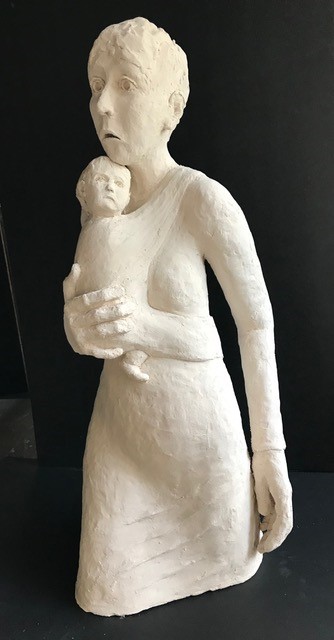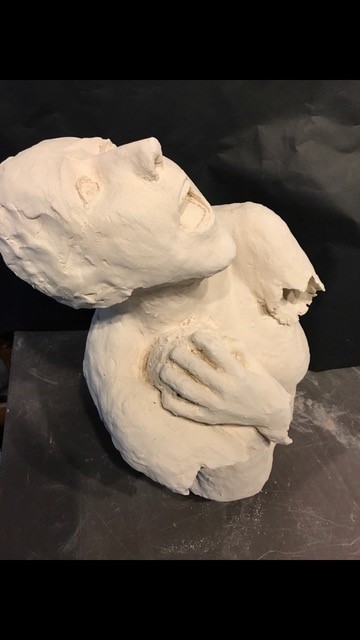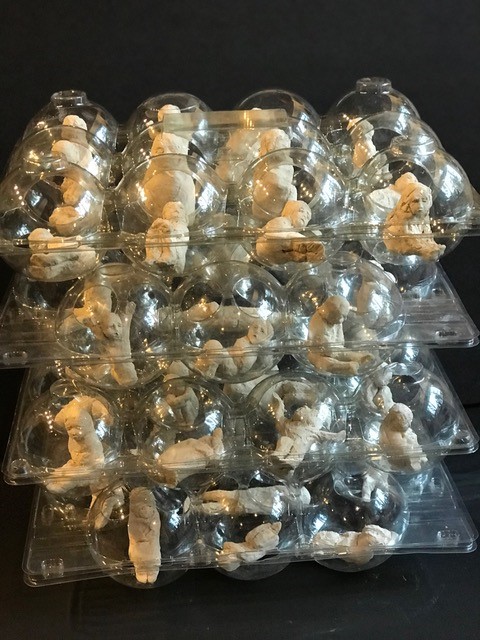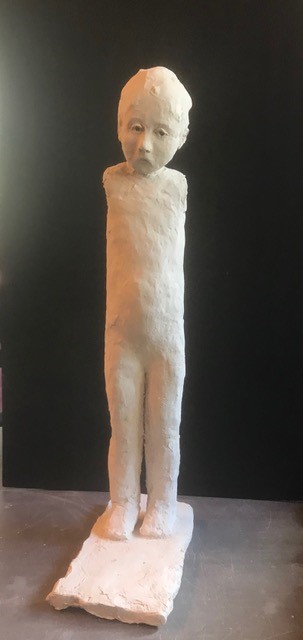I was born in 1945 in Wurzburg, Germany, less than a month after my hometown had been bombed and 90% destroyed. When the bombing and the fires started, my mother rushed with my three siblings (the oldest was not yet 4) to the river so they would have enough oxygen to survive. Luckily, she remembered to take a sewing kit and a few clothes since nothing else was rescued from our home. Both my parents had been Anti-Nazi Communists, but that did not matter, the bombs did not ask 'Are you guilty of the atrocities committed in your name?'. The sound of planes overhead was forever associated with an intake of breath.
I grew up playing in ruins unaware that this. Every aspect of life was affected by “the war”. Food was limited, resources were scarce and survival skills were part of life. This was normal to me. It was later that I realized what these playgrounds actually meant. To this day my children point out me and my sibling 'war injuries', like hating throwing out food, picking up nails of the sidewalks, saving things that might be useful etc. I also have a deep fear of nationalism and flag waving. I also see it as my civic duty to pay attention to politics, be watchful and pointing out what I think is wrong.
I never understood how a mad man was able to become so powerful that he could order concentration camps to be built to further his xenophobic ideology and start a world war for his own glorification. How he could have so many followers was always a puzzle to me. How could he have been elected and how could he have stayed in power? How could this happen? How could the people allow this to happen?
Because of this background, when Trump was elected all the alarm bells, that had been quietly ringing during the Bush years, began to ring very loudly. I had asked my parents, how come you did not speak out, did not protest? They explained that there was no platform to speak. Yes, they could have stood on the street corner and protested, everybody would have been afraid and left and they would have been taken away. This memory prompted me to speak up through my work. The flagrant disregard for human rights exhibited in the treatment of immigrants and refugees made me realize that this is the issue I need to speak about.
Normally, I start with a face, then decide where it takes me. This series, I started with the need to make a compelling point about refugees and the way they are portrayed, perceived, and treated. These refugees are just responding to the hardships brought on by politics, global warming, and war. I try to capture their humanity. The separation of parents from their children at the US border inflicted unimaginable misery to the already desperate, unfortunate people.
Tilmann Riemenschneider (1460 - 1531) lived and worked in my hometown. His emotive sculptures are scattered throughout the churches, and in the museums that were easily accessible to me. His work left a deep impression on me. He was the first wood carver and stone sculpture to reject the painting of his works. Duringh his time the artists paining the sculptures got paid more than the carver.
The artist, and social activist, Kaethe Kollwitz (1867 – 1945) has been my longtime inspiration. Her work is full of emotion that ring true. She worked in her own style, no matter what the artistic trend was at the time. She spoke up for the underclass, when it was dangerous and paid the price by being denied any platform for her work. The publications that showed her prints and drawings were shut down during both world wars.







